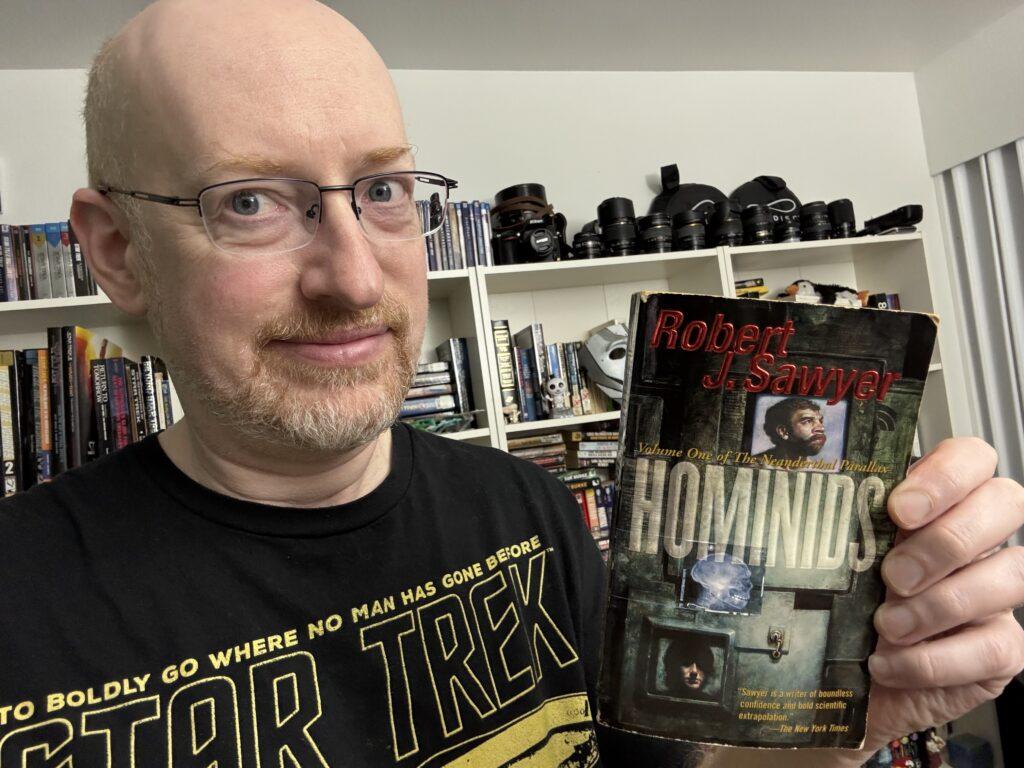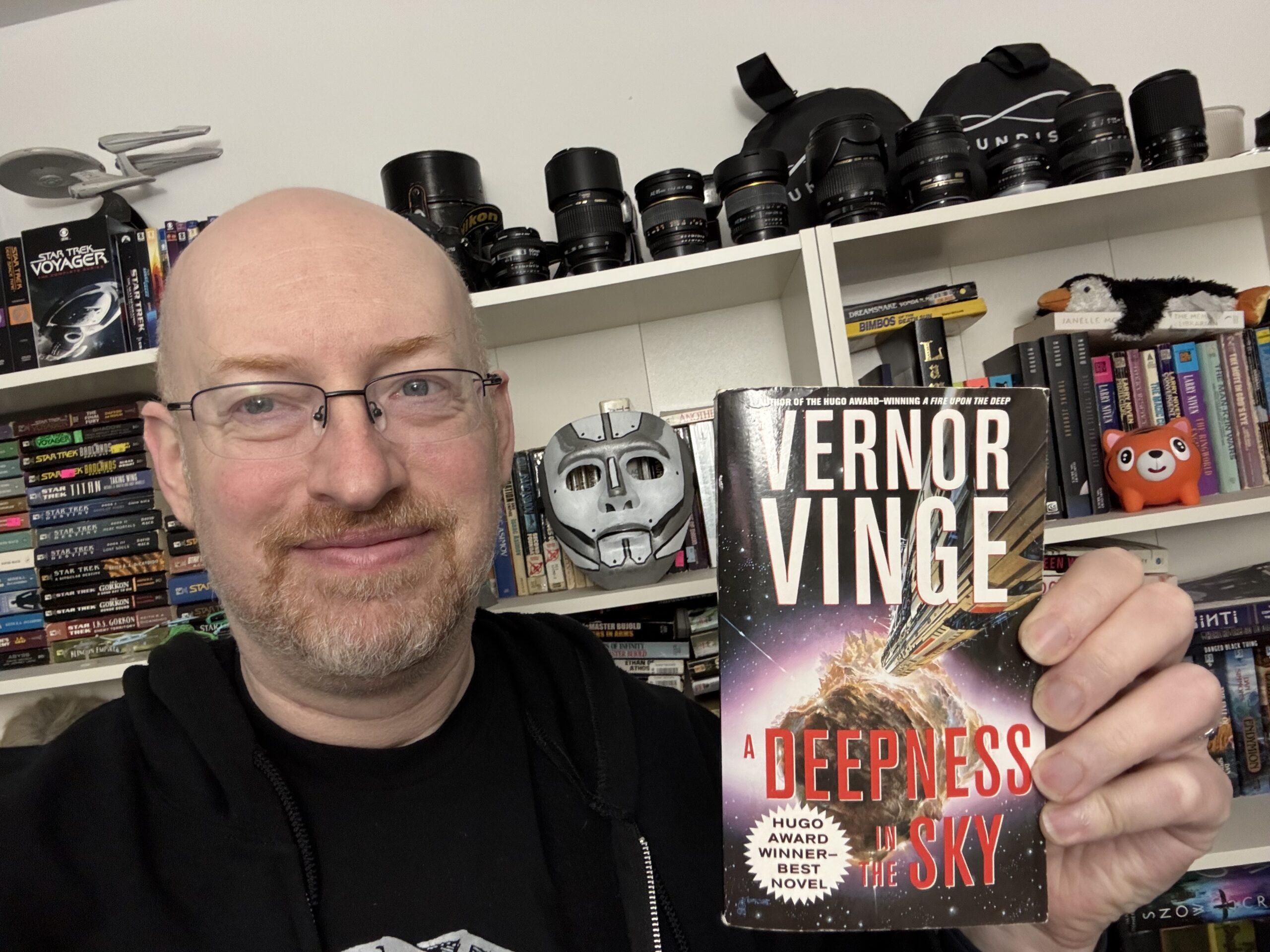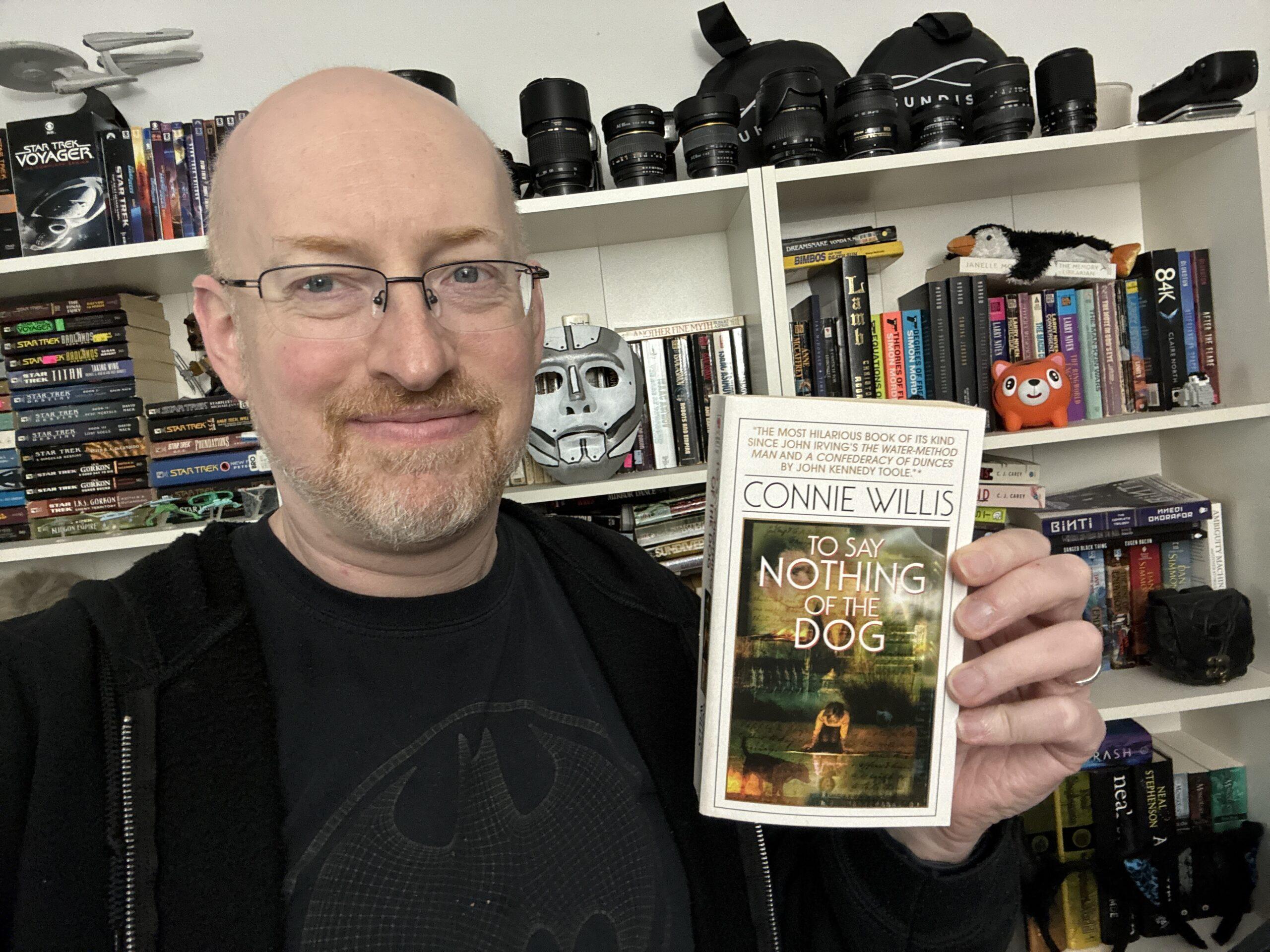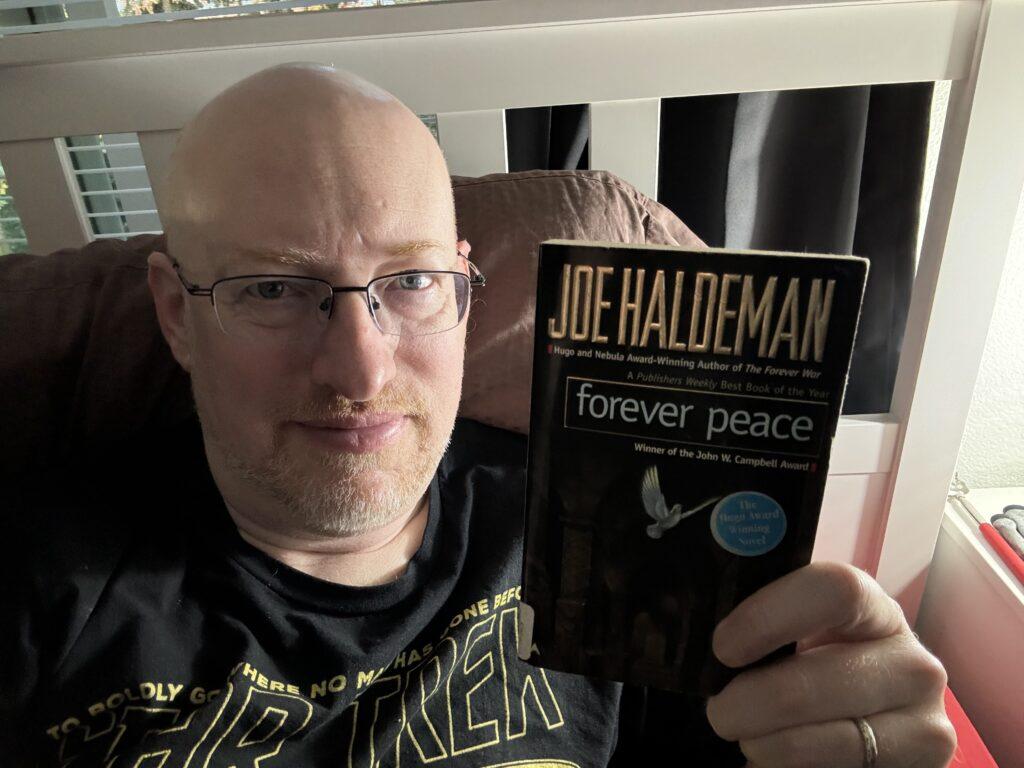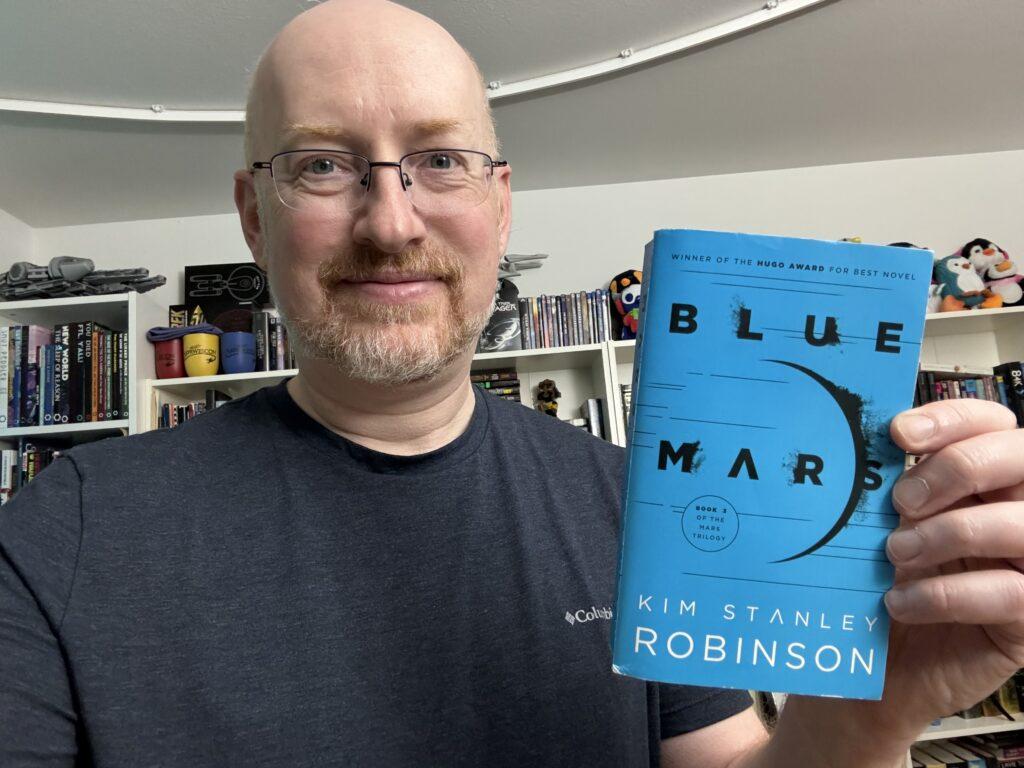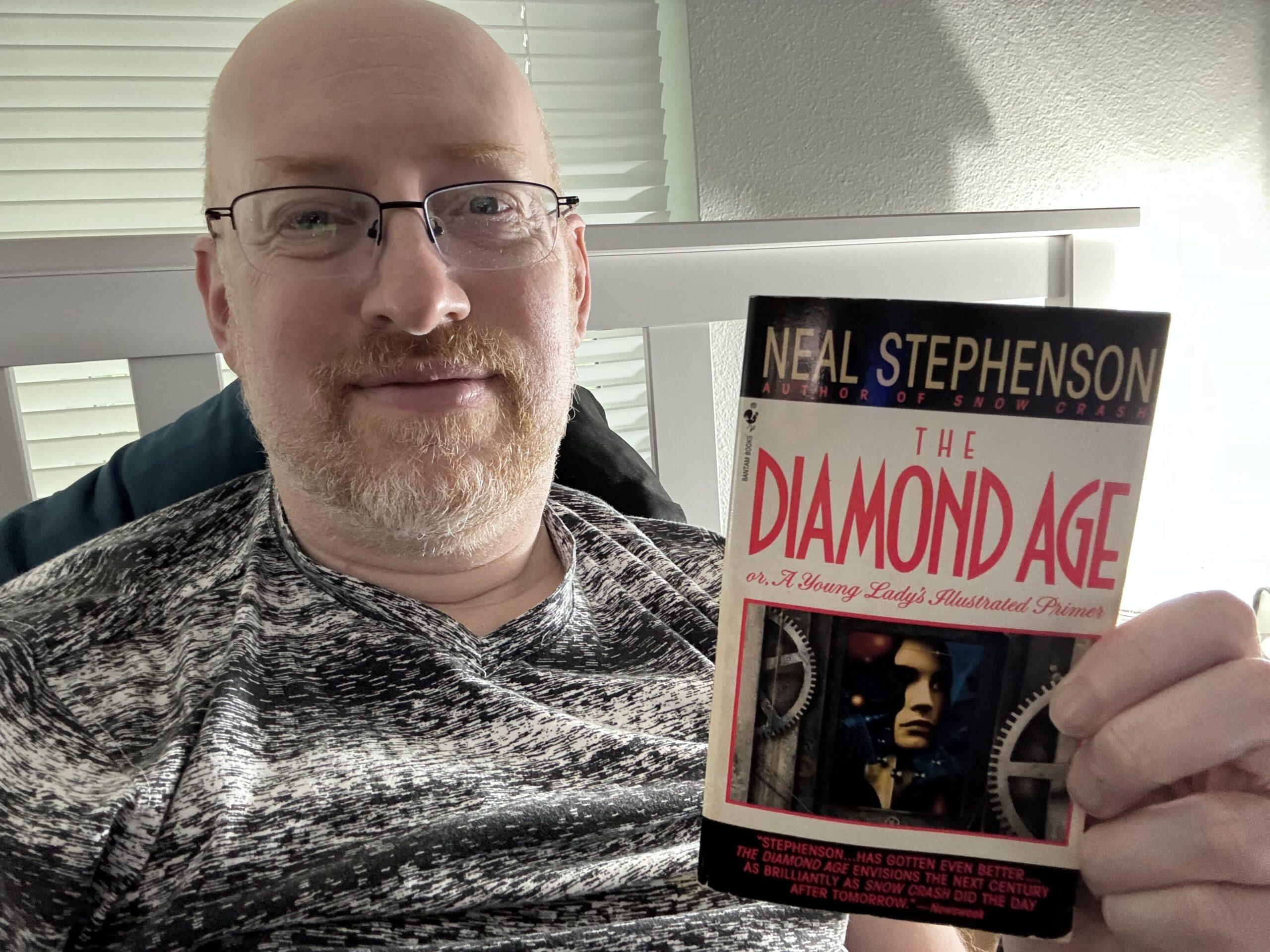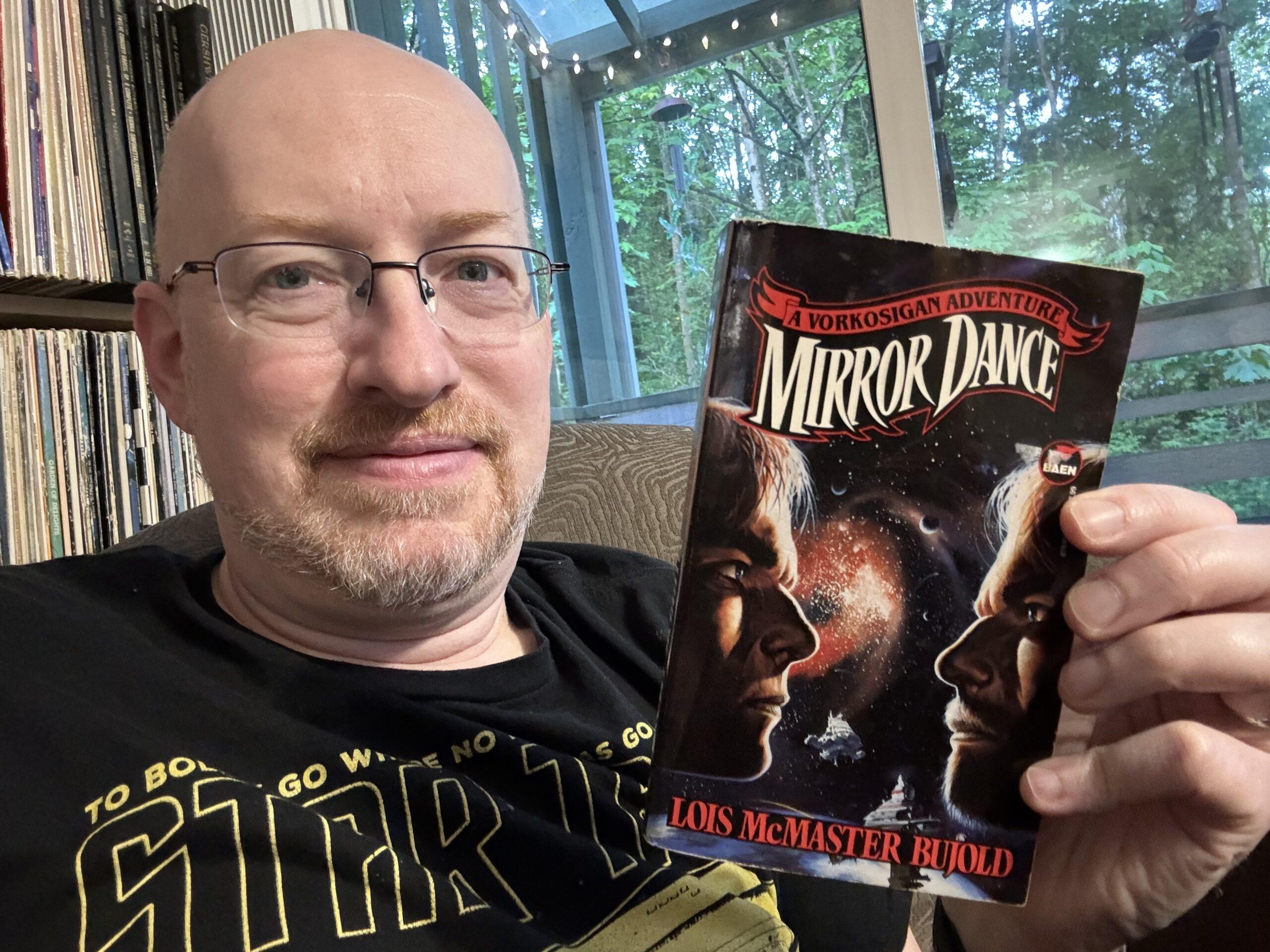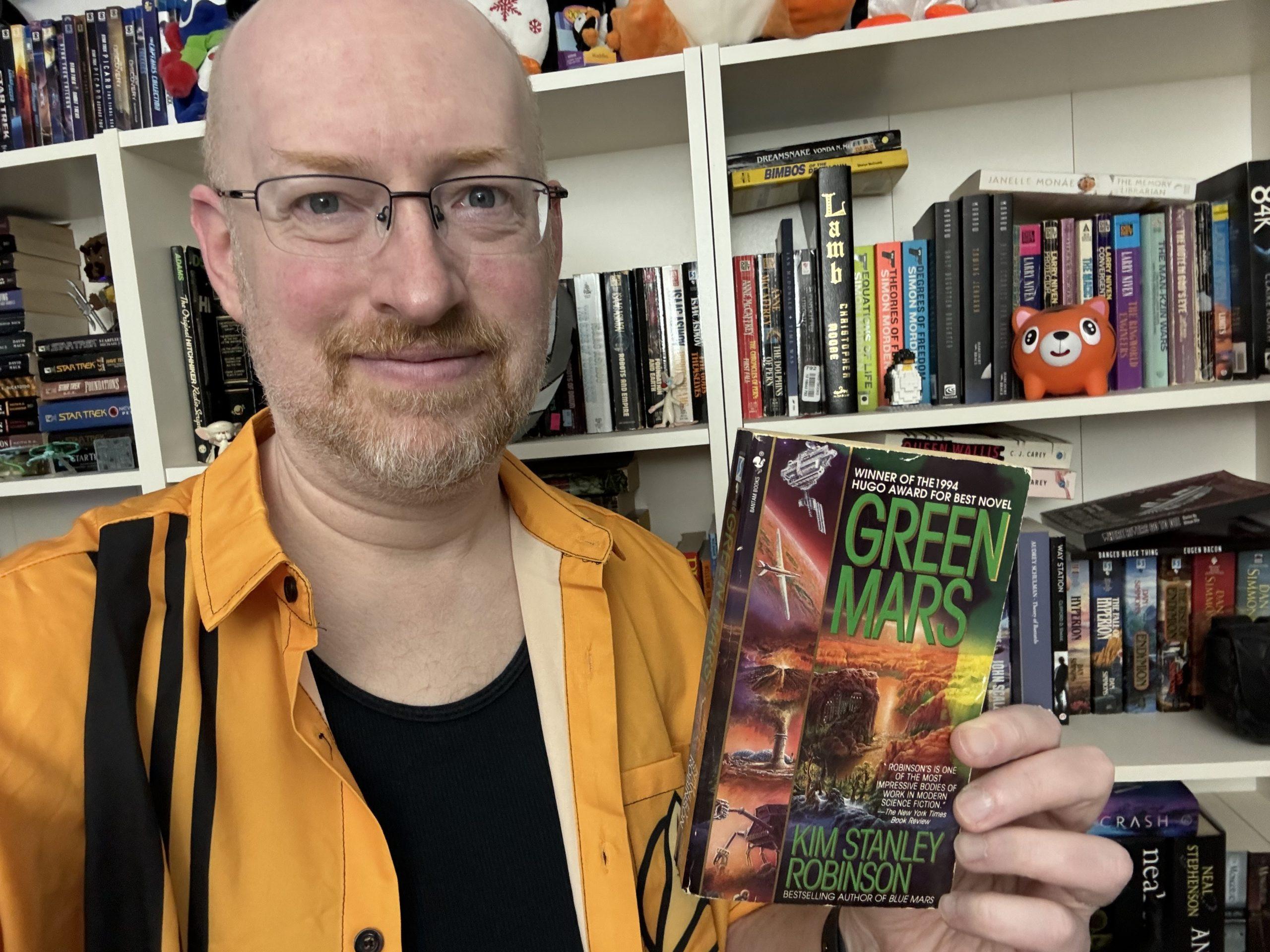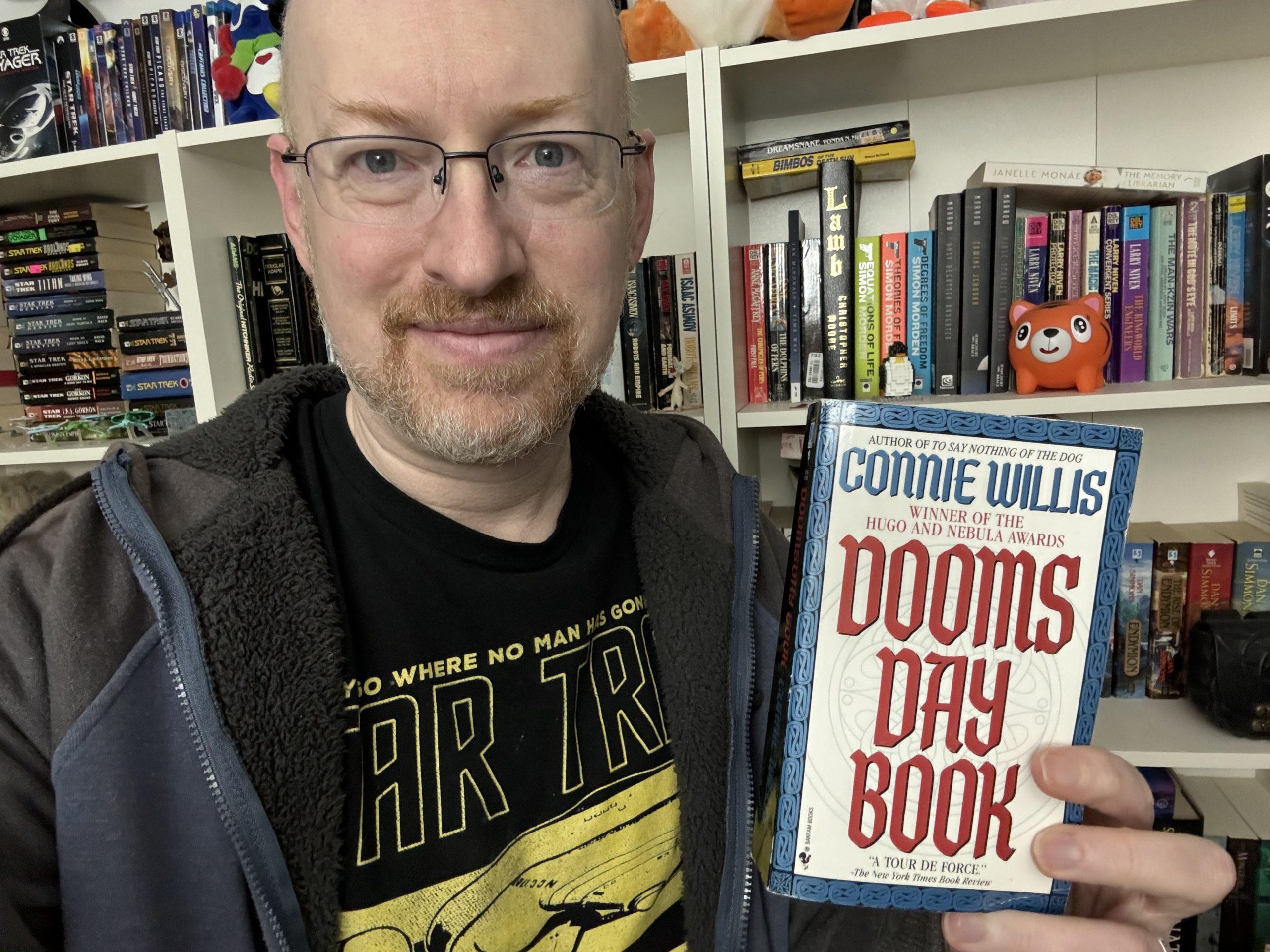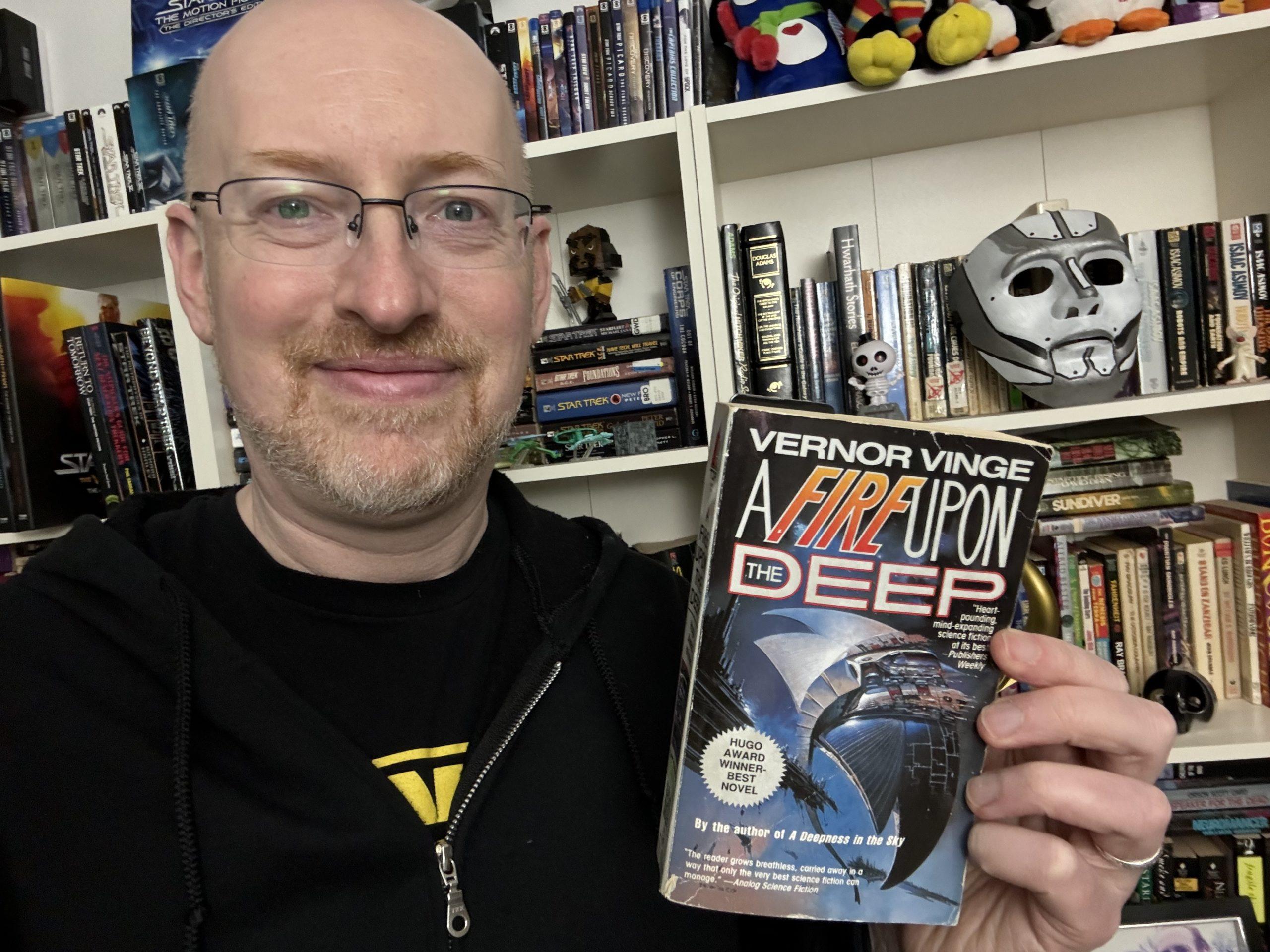Book 21 of 2025: ⭐️⭐️ 2003 Hugo Best Novel
A portal is accidentally opened between our Earth and a parallel Earth, where Neanderthals became the dominant human species, bringing one Neanderthal scientist over to our world. Some amusing moments as the scientist comes to grips with the oddities of our world when compared to his. However, I was quite thrown off by the introductions of the two primary female characters: one, in order to dive into water for a rescue attempt, strips down to her underwear, pausing to reflect that she wished she hadn’t donned such a lacy pair that morning; the other is raped at knifepoint. After finishing the book, I have only the vaguest ideas of what either character looked like; one is blonde and beautiful, the other more average. That got the book off on poor footing, and I never really warmed up to it after that. Not what I’ve come to expect from these more recent Hugo winners, and I won’t be continuing on with this series.
